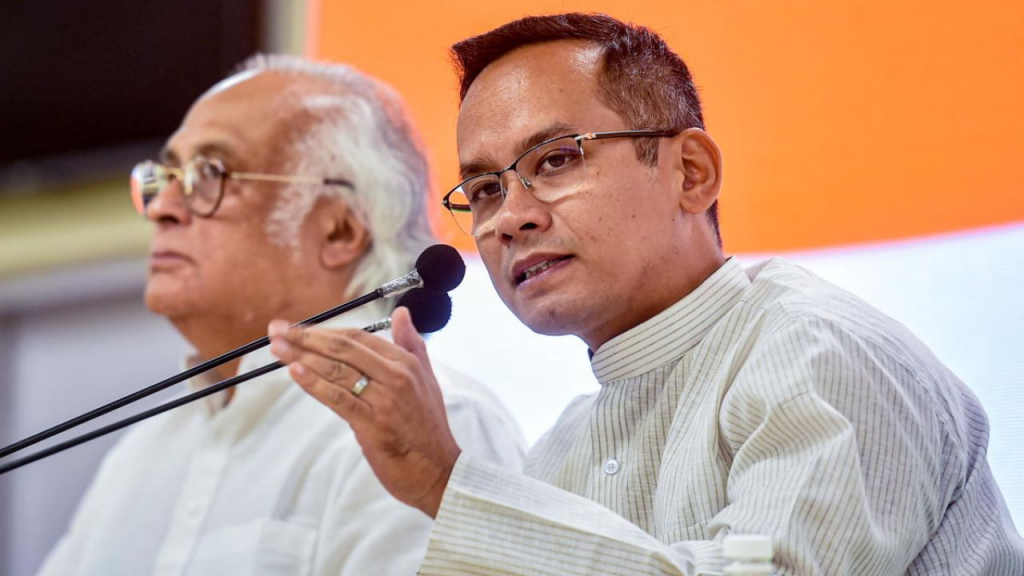
In a bold and unprecedented move, Congress Member of Parliament (MP) Gaurav Gogoi has tabled a no-confidence motion against the government led by Prime Minister Narendra Modi. This development has sent shockwaves through the political landscape, potentially setting the stage for a significant showdown in the Parliament.
Challenging the Modi Government – Gaurav Gogoi’s No-Confidence Motion
Gaurav Gogoi, a prominent and influential leader within the Congress party, has taken the reins to spearhead a formidable challenge to the ruling government. The no-confidence motion aims to test the strength and stability of the current government and question its policies, decisions, and actions.
The Significance of a No-Confidence Motion
A no-confidence motion is a powerful parliamentary tool that allows the opposition to express its lack of confidence in the government. If successful, it can lead to the fall of the existing government, paving the way for potential early elections or the formation of an alternative government. It is a rare event in the Indian political arena, making the current situation all the more crucial.
Grounds for the Motion
The no-confidence motion tabled by Gaurav Gogoi and supported by the opposition rests on several key grounds:
1. Handling of Economic Crisis
The opposition has accused the Modi government of mismanagement and inadequate measures in handling the economic crisis that has plagued the nation. High inflation rates, rising unemployment, and a sluggish economy have fueled concerns, leading to discontent among the public.
2. Agrarian Distress
Another critical point raised by the opposition is the government’s handling of the agrarian distress. Farmer protests, demands for fair prices, and agrarian policies have been subjects of debate, and the opposition aims to hold the government accountable for its actions or lack thereof.
3. Controversial Legislative Actions
The government’s push for certain legislative actions, such as the controversial Citizenship Amendment Act (CAA) and the farm bills, has generated widespread dissent. Critics argue that these decisions have led to polarization and division within the country.
4. Governance and Transparency
Transparency and accountability in governance have been a significant concern for the opposition. They allege that the government has failed to address issues related to corruption and failed to deliver on its promises effectively.
Potential Outcomes
The success of a no-confidence motion is contingent on numbers, and the opposition needs to garner enough support from MPs across various parties to carry the motion through. If the motion succeeds, it would be a historic moment and could alter the political landscape in the country.
1. Government Retains Confidence
If the government manages to retain the confidence of the majority of MPs, it will solidify its position, demonstrating its stability and command over the legislative body. This would be a significant victory for the ruling party and could potentially weaken the opposition’s future endeavors.
2. Government Falls, Early Elections
Should the no-confidence motion receive enough support and the government falls, it would trigger a process for early elections. In this scenario, the political parties would gear up for fresh elections, vying for the mandate of the people.
3. Formation of an Alternative Government
In the event of the government’s fall, but with no clear majority for any single party, a window of opportunity opens for the formation of an alternative government. This would involve parties coming together and reaching a consensus to provide stable governance.
The Road Ahead
The no-confidence motion against the Narendra Modi government has set the stage for intense political drama in the Parliament. As the motion is debated, both the ruling party and the opposition will present their cases and try to sway undecided MPs. The outcome will be closely watched by the nation, as it has the potential to shape India’s political trajectory in the coming days.
Conclusion
Gaurav Gogoi’s no-confidence motion against the Narendra Modi government marks a significant moment in Indian politics. It reflects the power of the parliamentary system and the importance of checks and balances in a democracy. As the motion progresses, the nation will witness the dynamics of political maneuvering and the impact it can have on the country’s governance.
It’s important to note that political developments are ever-changing, and the situation may evolve rapidly. As citizens, staying informed and engaged in the political process remains crucial for the future of the nation.


